Christianity faces biggest schism in a millennium
Ukraine granted own independent Orthodox Church despite threats from Moscow
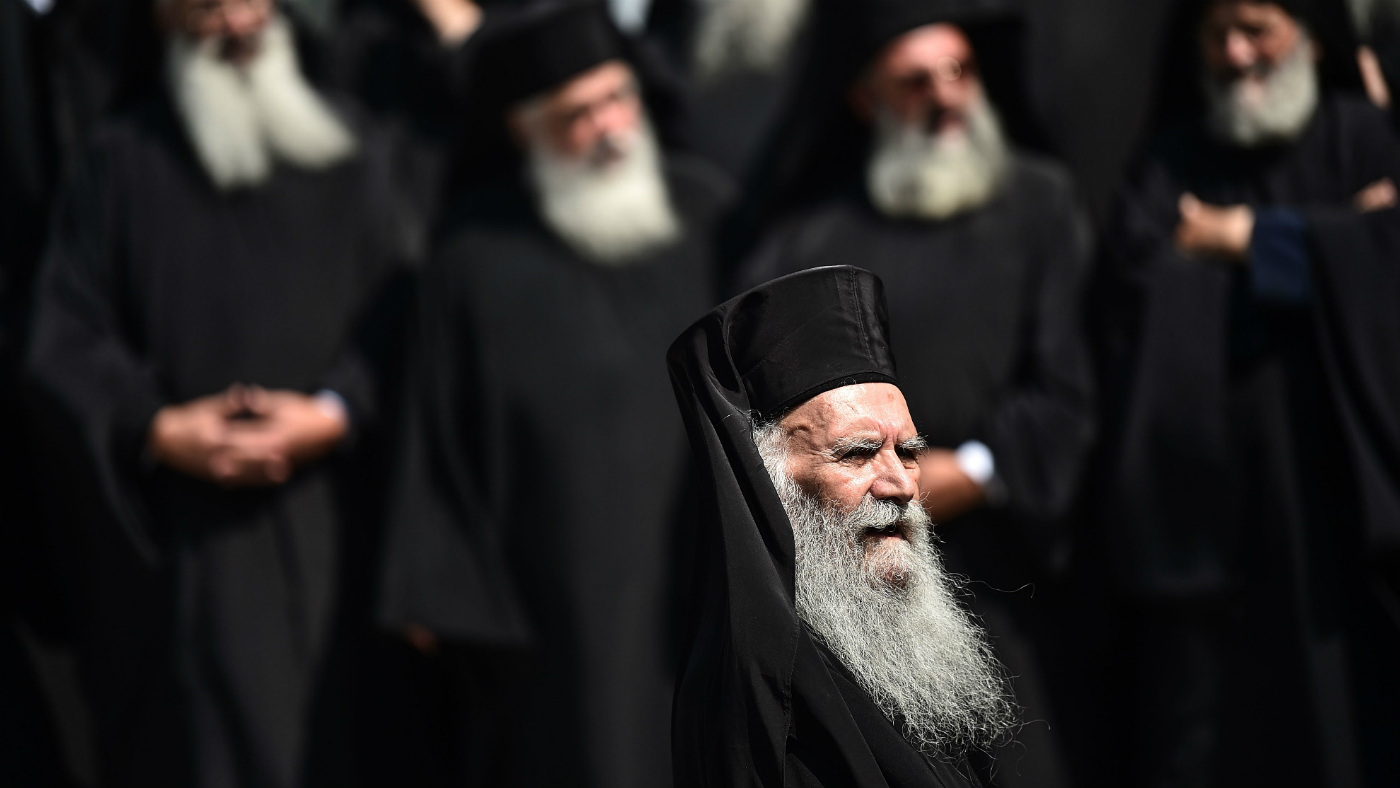
A free daily email with the biggest news stories of the day – and the best features from TheWeek.com
You are now subscribed
Your newsletter sign-up was successful
Ukraine has secured approval from the global head of Orthodox Christianity to create its own Church independent of Russia’s patriarchate, in a politically charged move that has sparked anger in Moscow.
Constantinople’s Patriarch Bartholomew, the Istanbul-based spiritual leader of the world’s 260 million Orthodox Christians, confirmed in a statement on Thursday that the Church will “proceed to the granting of autocephaly [independence] to the Church of Ukraine”.
The move has met with fierce opposition within the Russian Church, leaving the two nations “dangerously close to a religious war”, says Bloomberg’s Sergei Chapnin.
The Week
Escape your echo chamber. Get the facts behind the news, plus analysis from multiple perspectives.

Sign up for The Week's Free Newsletters
From our morning news briefing to a weekly Good News Newsletter, get the best of The Week delivered directly to your inbox.
From our morning news briefing to a weekly Good News Newsletter, get the best of The Week delivered directly to your inbox.
So what is it all about?
Why does Ukraine want its own Church?
Orthodox Christianity was formally adopted in the Slavic region in 988 by Vladimir the Great, whose empire encompassed much of modern-day Ukraine and western Russia. Since the 17th century, the churches of both countries, along with Belarus, have been linked together under a centralised Moscow-based leadership.
Following the fall of the Soviet Union in 1991, “most Orthodox believers in Russia, Ukraine and Belarus remained united under one spiritual leader, the Patriarch of Moscow”, says Bloomberg’s Chapnin.
A free daily email with the biggest news stories of the day – and the best features from TheWeek.com
However, there were calls for the Ukrainian Church to be given independence, with the Church’s former leader Patriarch Filaret leading the drive, though the campaign was weakened drastically by his excommunication in 1997.
In more recent years, tensions between Ukraine and Russia have reached critical levels following Russia’s annexation of the Ukrainian peninsula of Crimea in 2014.
As a result, “recognition of a Ukrainian Church that is not under Moscow’s jurisdiction” has once again become an increasingly fraught issue, and one that has been picked up by leaders in Kiev including President Petro Poroshenko, says Associated Press.
“The creation of a local Ukrainian Church has been one of Poroshenko’s main slogans going into the 2019 presidential election,” says Volodymyr Fesenko, an analyst at Ukraine’s Penta think tank.
But most agree that other forces are also behind the push for religious autonomy.
Ukraine has accused the Russian Orthodox Church of “allowing itself to be used as a tool of the Kremlin to justify Russian expansionism and support of separatist rebels in eastern Ukraine”, Reuters reports. The demand for an independent Church is seen as a means of “asserting [Ukraine’s] territorial independence”, adds The Atlantic.
Why did Patriarch Bartholomew agree to the split?
Although the Ecumenical Patriarchate in Constantinople is considered the Mother Church of Orthodox Christianity, in terms of size it is “dwarfed by the Russian Orthodox Church” and its 100 million adherents, says The Wall Street Journal.
This disparity has created something of a power struggle. In 2016, Russian Patriarch Kirill “skipped a summit of Orthodox leaders that would have been the first in a millennium” and a “signature achievement” for Patriarch Bartholomew.
According to the US newspaper, this week’s decision by Bartholomew is a “striking assertion of his status as the foremost Orthodox leader, a position that Moscow has sought to challenge in recent years with its size, wealth and political clout”.
The Kyiv Post reports that Filaret is no longer excommunicated and will be the head of the new Church.
What is Russia’s response?
“For Russia, the crisis is geopolitical as well as spiritual,” says Bloomberg’s Chapnin. “The stakes are so high that in order to protest Ukraine’s religious autonomy, Russia may respond harshly enough to trigger a deep schism in the Christian world.”
Russian Patriarch Kirill said last month that his church would break ties with the Istanbul-based patriarchate if it recognises an independent Ukrainian Church. Such a separation would “catastrophically undermine the unity of global Orthodoxy”, he added.
The threat was echoed by Metropolitan Hilarion of Volokolamsk, head of external affairs for the Russian Church. “We the Russian Church will not recognise this autocephaly, of course, and we will have no other choice but to sever ties with Constantinople,” he said.
The question of whether the new Ukrainian Church will take over the Moscow Patriarchate’s property in the country is another contentious issue, which may result in “confrontation and violent protests”, says the Kyiv Post.
Addressing the possibility of violence, Filaret said: “Moscow wants a conflict, and we - Ukrainians - don’t want it.”
-
 How the FCC’s ‘equal time’ rule works
How the FCC’s ‘equal time’ rule worksIn the Spotlight The law is at the heart of the Colbert-CBS conflict
-
 What is the endgame in the DHS shutdown?
What is the endgame in the DHS shutdown?Today’s Big Question Democrats want to rein in ICE’s immigration crackdown
-
 ‘Poor time management isn’t just an inconvenience’
‘Poor time management isn’t just an inconvenience’Instant Opinion Opinion, comment and editorials of the day
-
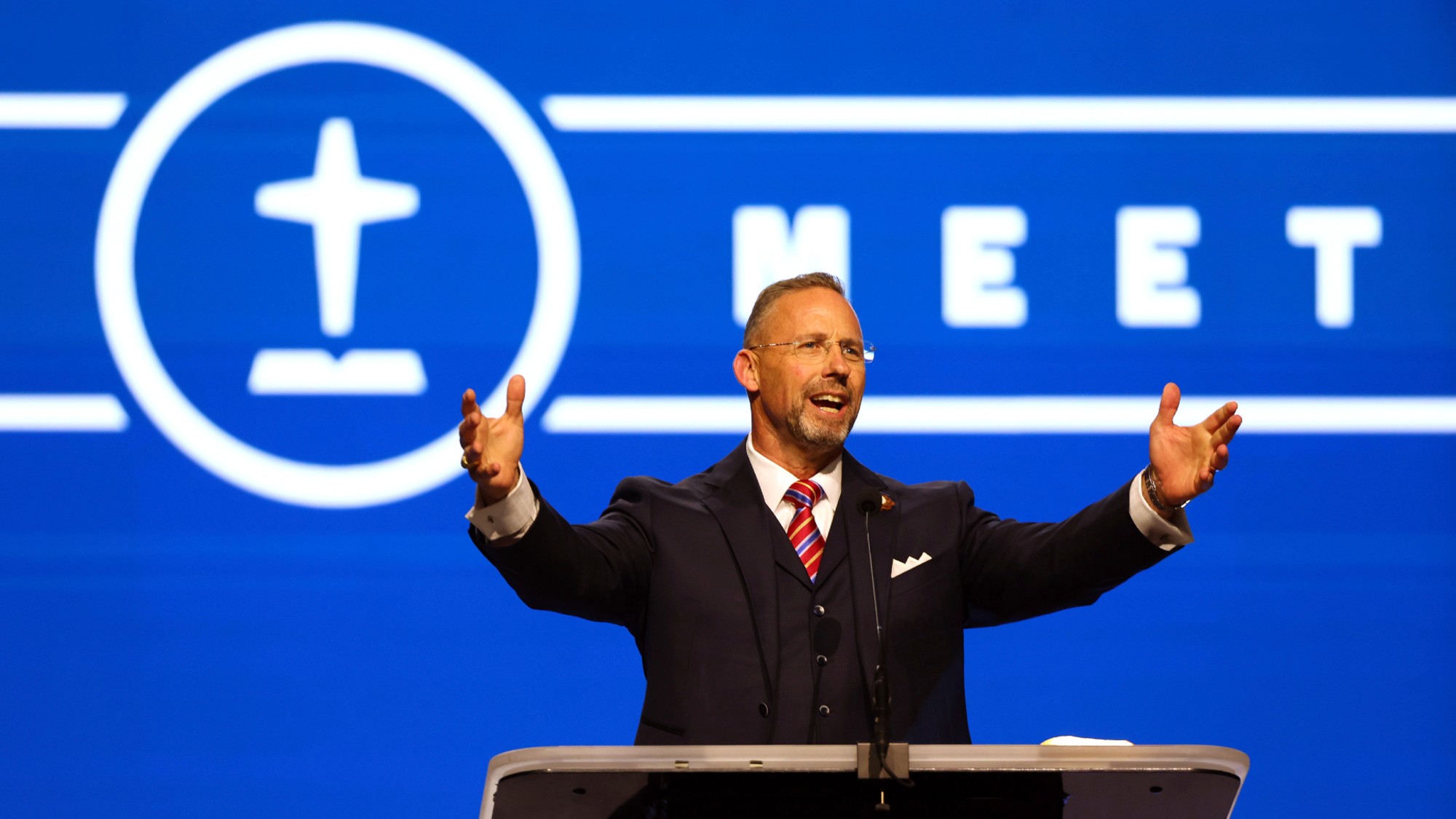 Southern Baptists lay out their political road map
Southern Baptists lay out their political road mapThe Explainer The Southern Baptist Convention held major votes on same-sex marriage, pornography and more
-
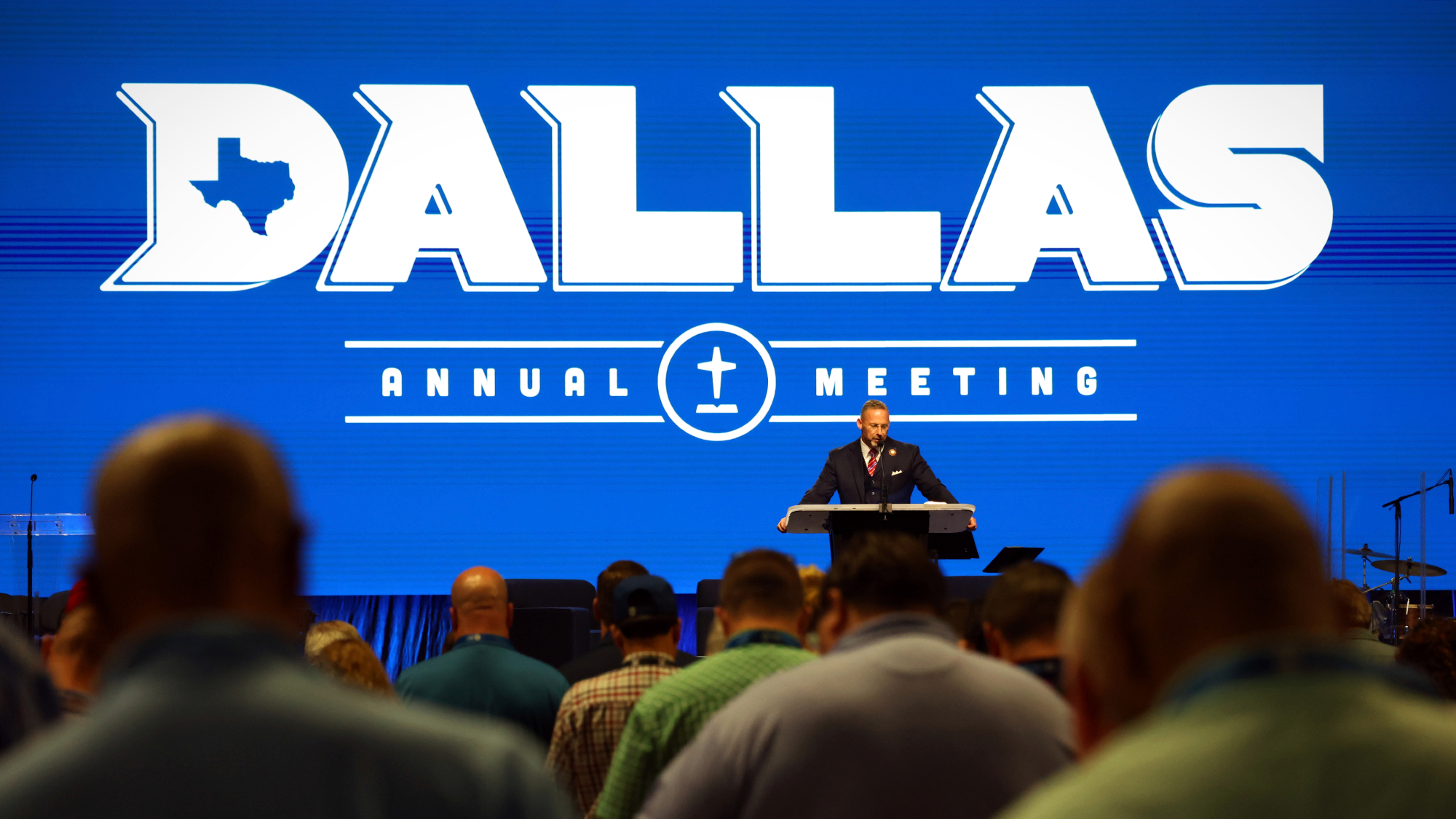 Southern Baptists endorse gay marriage ban
Southern Baptists endorse gay marriage banSpeed Read The largest US Protestant denomination voted to ban same-sex marriage and pornography at their national meeting
-
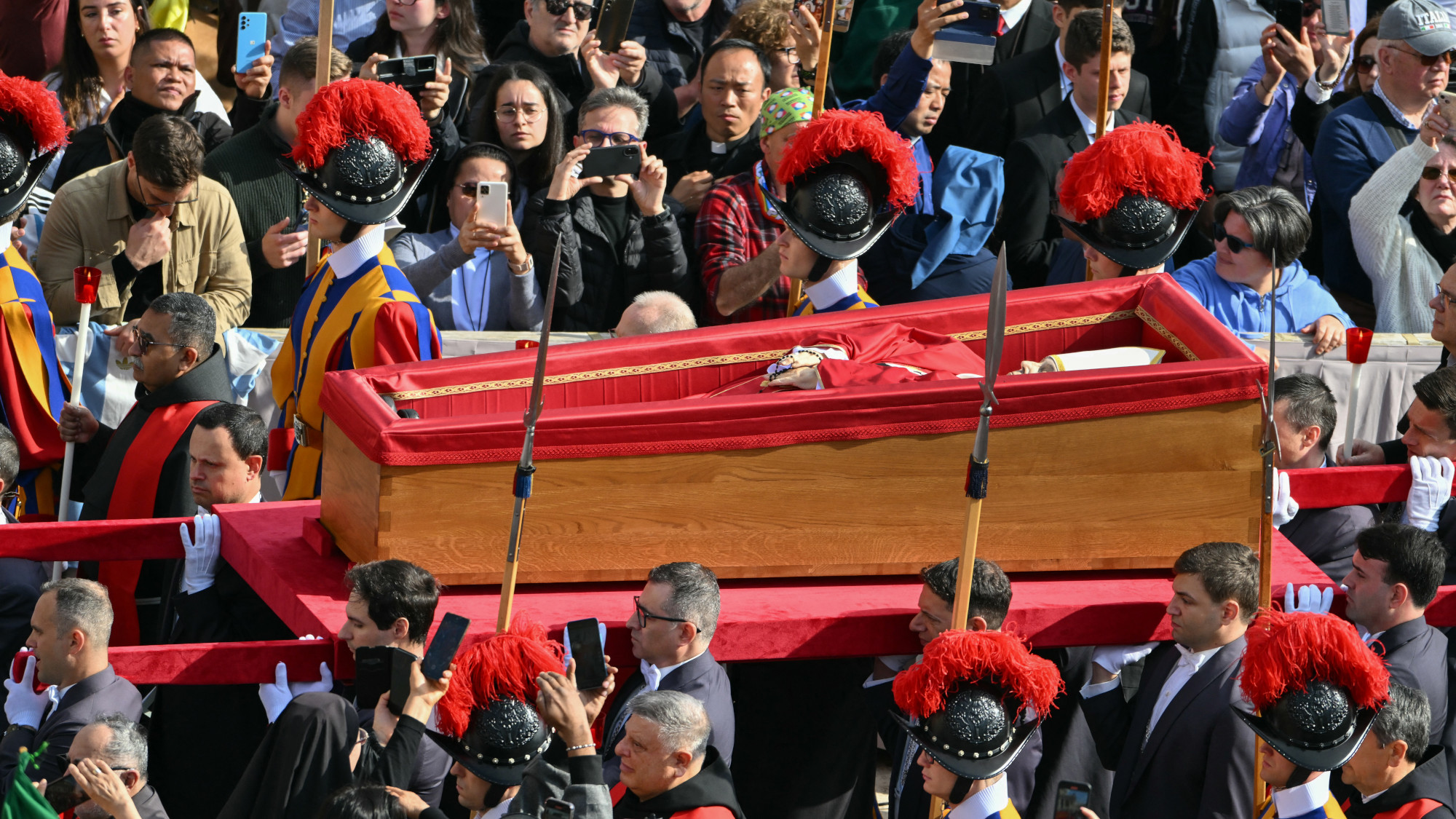 Millions mourn as Vatican prepares for transition
Millions mourn as Vatican prepares for transitionFeature Pope Francis, the pontiff who challenged tradition, leaves the Catholic Church at a crossroad to choose his successor
-
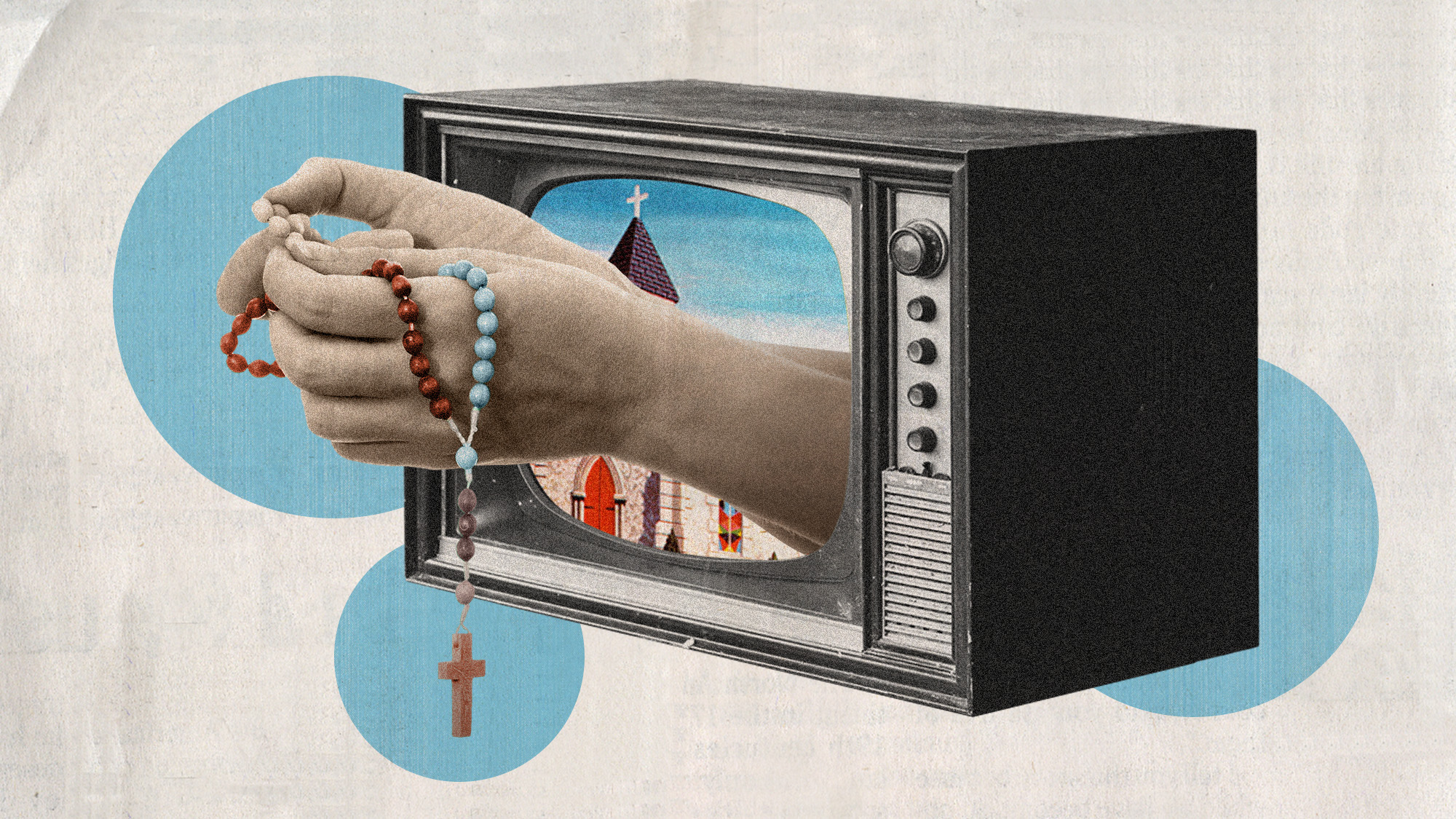 Christian dramas are having a moment
Christian dramas are having a momentUnder The Radar Biblical stories are being retold as 'bingeable' seven-season shows
-
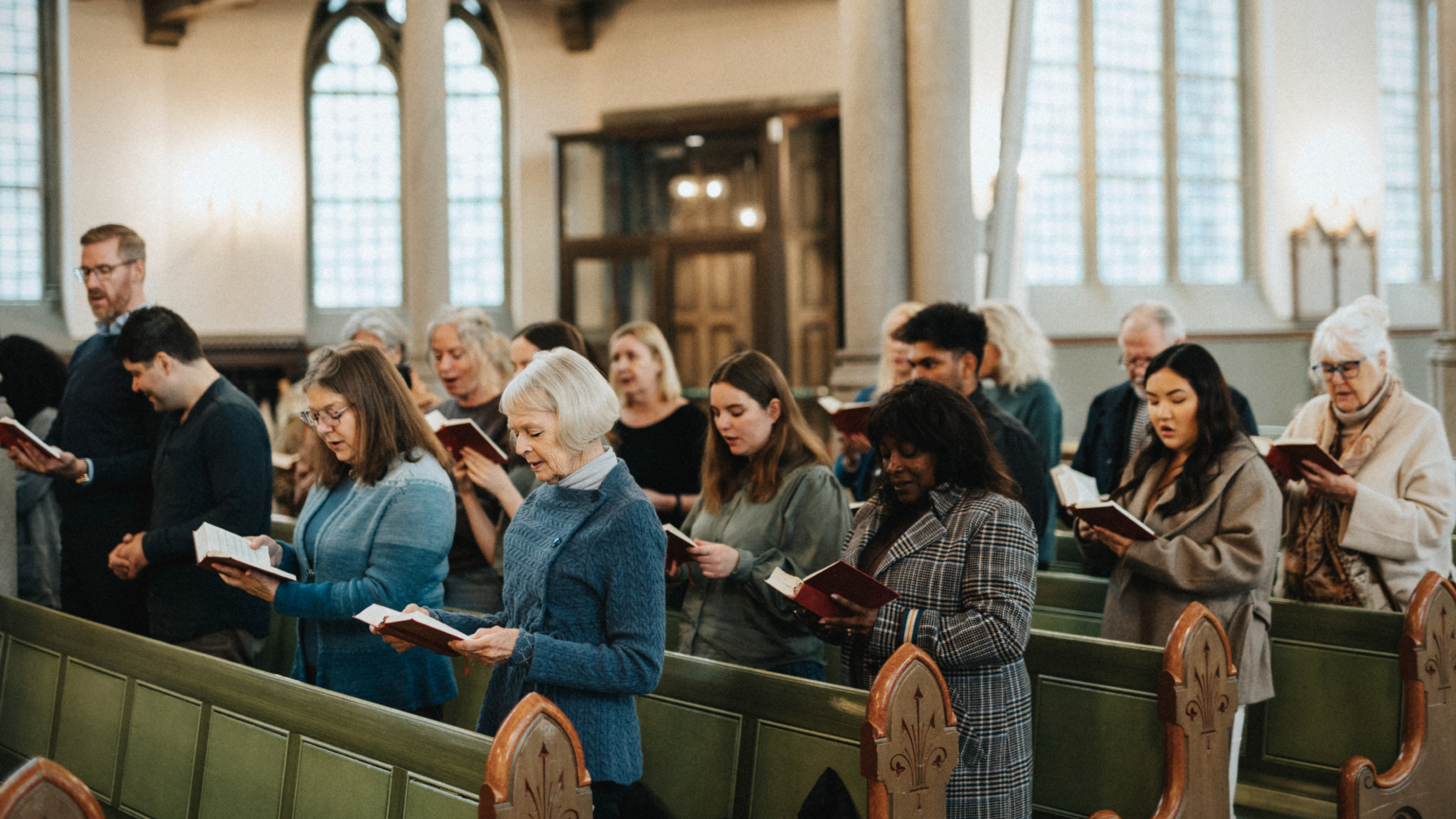 US Christianity's long decline has halted, Pew finds
US Christianity's long decline has halted, Pew findsSpeed Read 62% of Americans call themselves Christian, a population that has been 'relatively stable' for the past five years
-
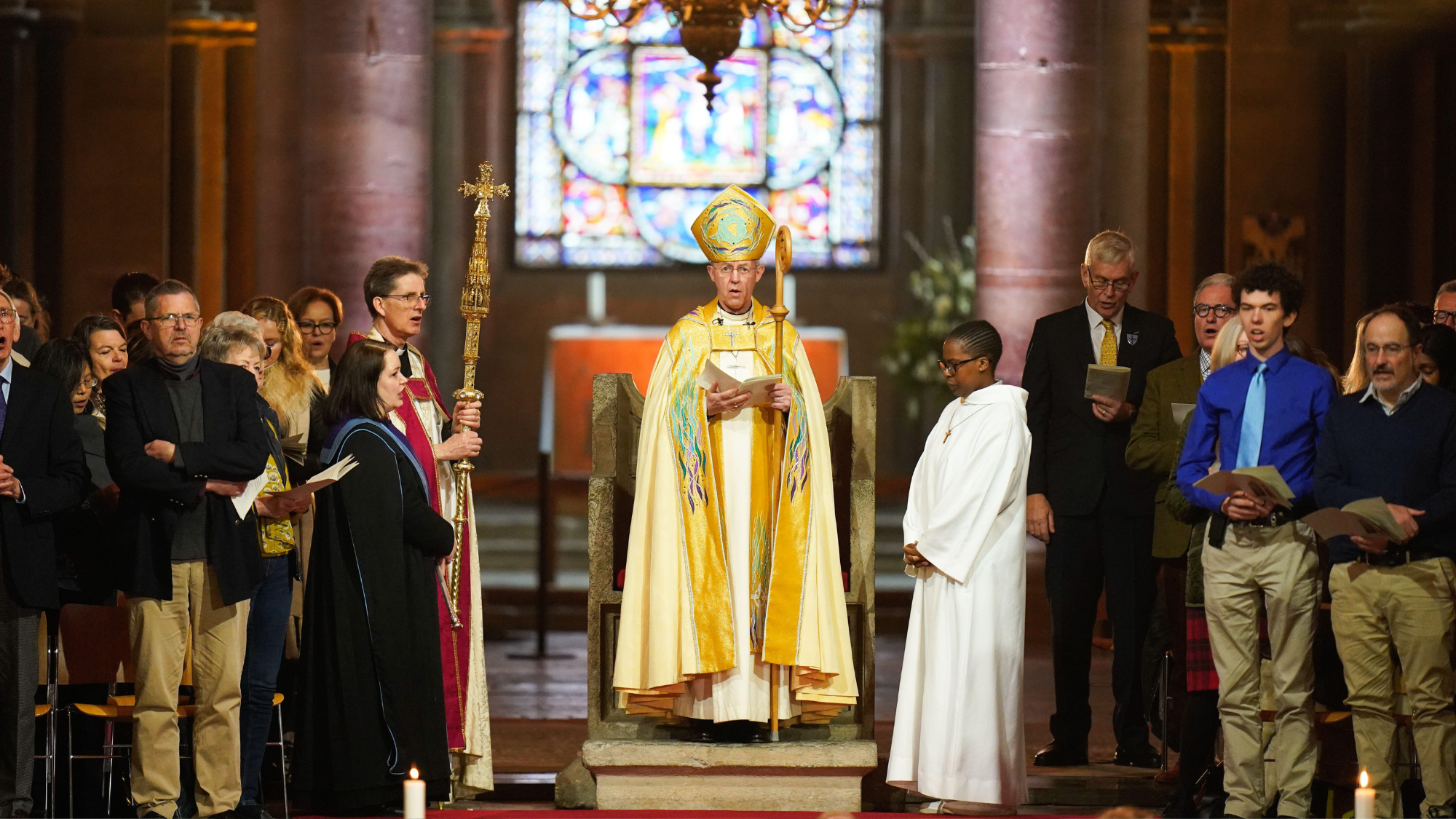 The Church of England's legacy of slavery
The Church of England's legacy of slaveryThe Explainer Should the CofE offer financial redress for its involvement in the transatlantic slave trade?
-
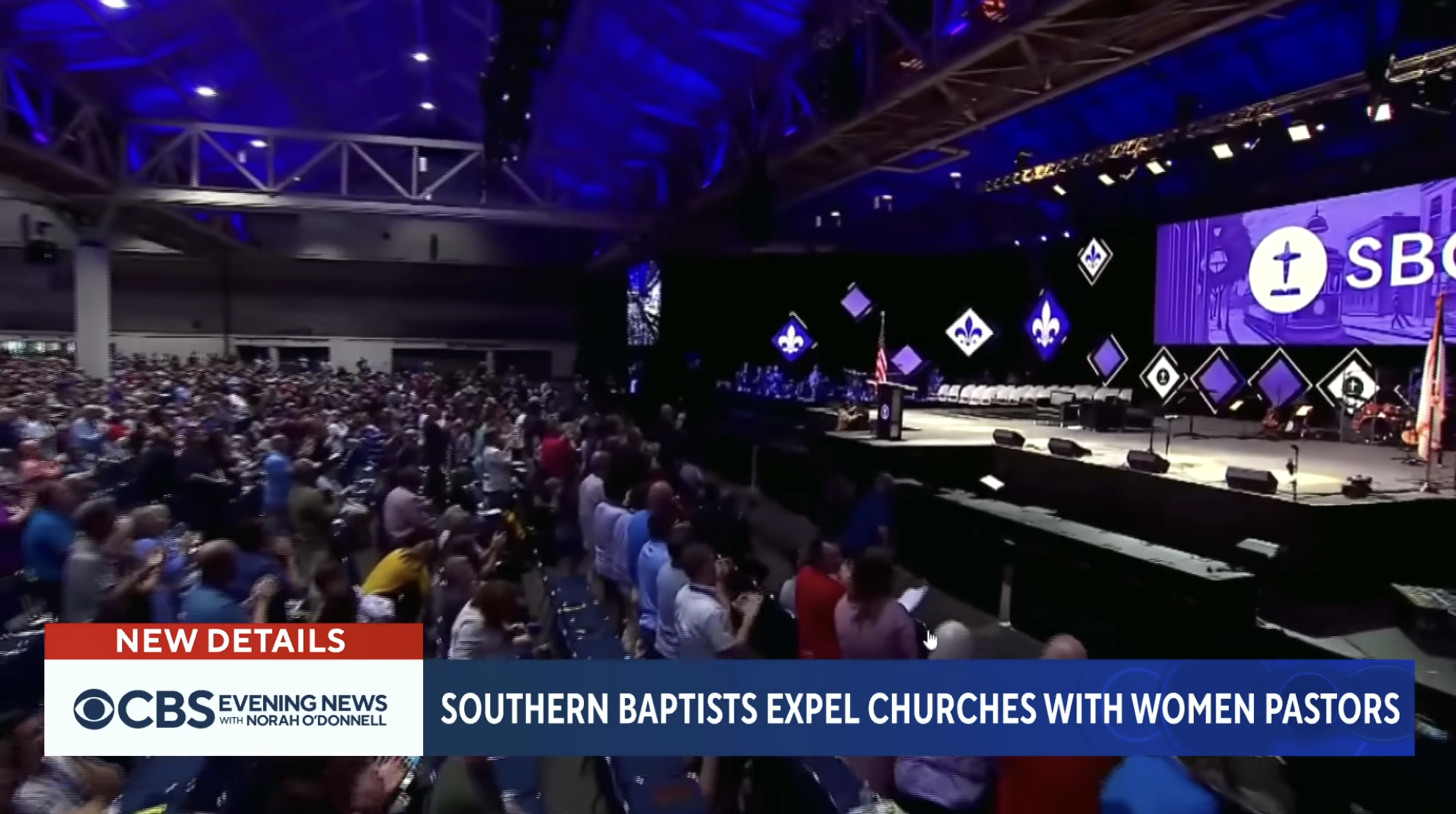 Southern Baptists expel Saddleback, 2nd church over female pastors, approve further clampdown
Southern Baptists expel Saddleback, 2nd church over female pastors, approve further clampdownSpeed Read
-
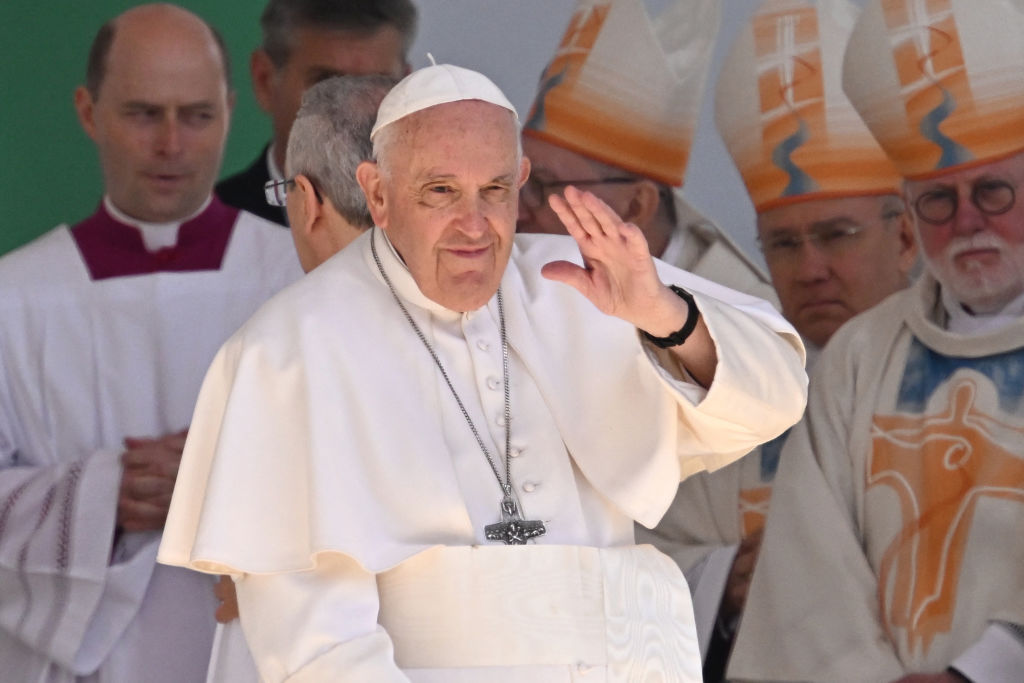 Pope Francis is involved in 'mission' to bring peace to Ukraine
Pope Francis is involved in 'mission' to bring peace to UkraineSpeed Read